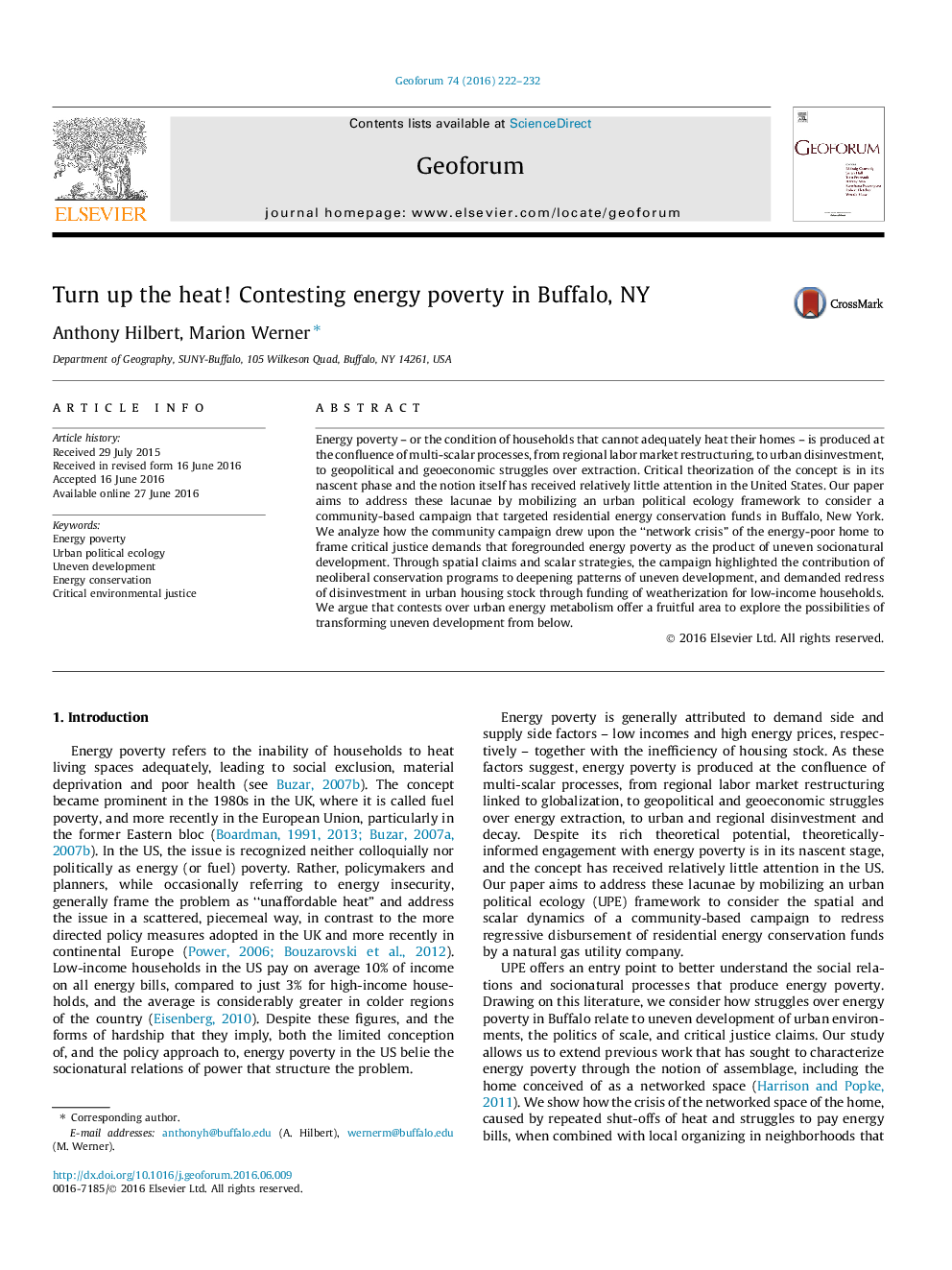| Article ID | Journal | Published Year | Pages | File Type |
|---|---|---|---|---|
| 5073458 | Geoforum | 2016 | 11 Pages |
â¢Develops urban political ecology as a framework for theorizing energy poverty.â¢Offers a grounded account of urban struggles over neoliberal energy conservation policies.â¢Reconsiders energy justice demands through the lens of uneven development.
Energy poverty - or the condition of households that cannot adequately heat their homes - is produced at the confluence of multi-scalar processes, from regional labor market restructuring, to urban disinvestment, to geopolitical and geoeconomic struggles over extraction. Critical theorization of the concept is in its nascent phase and the notion itself has received relatively little attention in the United States. Our paper aims to address these lacunae by mobilizing an urban political ecology framework to consider a community-based campaign that targeted residential energy conservation funds in Buffalo, New York. We analyze how the community campaign drew upon the “network crisis” of the energy-poor home to frame critical justice demands that foregrounded energy poverty as the product of uneven socionatural development. Through spatial claims and scalar strategies, the campaign highlighted the contribution of neoliberal conservation programs to deepening patterns of uneven development, and demanded redress of disinvestment in urban housing stock through funding of weatherization for low-income households. We argue that contests over urban energy metabolism offer a fruitful area to explore the possibilities of transforming uneven development from below.
